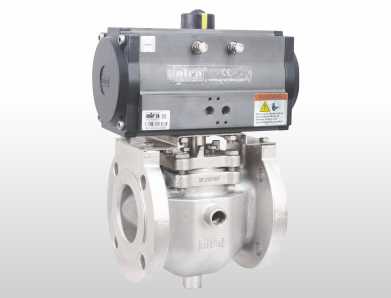If you work in the oil and gas industry, you know that plug valves are essential to many operations. But what exactly is a plug valve? And what are the different types that you need to know about?
In this blog post, we’ll take a look at the different types of plug valves and the advantages of each one. We’ll also explore why you might use a plug valve and when you might want to avoid using one. Finally, we’ll offer tips on choosing the suitable plug valve for your needs.
So let’s get started!
What is a Plug Valve?
A plug valve is a type of valve that uses a plug to control fluid flow through a pipe. The plug is typically cylindrical and fits snugly into the valve’s body. Plug valves are often used in applications where it is essential to control fluid flow precisely, such as in plumbing or piping systems.
There are two main types of plug valves: those with a solid plug and those with a porous plug. Solid plug valves are typically used for applications where it is essential to completely stop fluid flow, such as in a shut-off valve. Porous plug valves are typically used for applications where it is essential to control fluid flow but not necessarily stop it completely, such as in a regulating valve.
Plug valves can be made from various materials, including metals such as brass, bronze, or stainless steel or plastics such as PVC or polypropylene. The material that is chosen for a particular application will depend on the properties of the fluid that will be flowing through the valve and the conditions under which the valve will be operating.
Plug valves are relatively simple devices but can effectively control fluid flow. When choosing a plug valve for an application, it is essential to consider the type of fluid flowing through the valve and the desired control over the flow rate.
The Different Types of Plugs
There are a few different types of plugs, each with its specific function. The most common type of plug is the mechanical plug, which blocks or allows flow through a pipe. These plugs can be opened and closed manually or automatically. Another type of plug is the expansion plug, which seals off an unused pipe portion. These plugs are usually made of rubber or plastic and expand when they come into contact with the fluid. Finally, there are check valves, which are used to prevent backflow in a system. These valves can be either manually operated or automatic.
The Different Advantages of Each Type
There are many different plug valves, each with its advantages. Mechanical plugs are typically the most economical and easy to install, while expansion plugs provide a more permanent solution. Check valves can be used to prevent backflow in a system but may require more maintenance than other types of valves.
Why Use a Plug Valve?
A plug valve is a type of valve used to block or allow flow through a pipe. Plug valves are most commonly used in applications where it is necessary to control the flow of fluids. There are many different plug valves, each with its advantages. Mechanical plugs are typically the most economical and easy to install, while expansion plugs provide a more permanent solution. Check valves can be used to prevent backflow in a system but may require more maintenance than other types of valves.
When Not to Use a Plug Valve
There are certain situations when a plug valve should not be used. For example, if the line is carrying a hazardous or poisonous substance, a plug valve could cause a leak. A plug valve could burst and cause injury if the line is under high pressure. Finally, if the line carries a flammable substance, a plug valve could create sparks that ignite the substance.
How to Choose the Right Plug Valve
There are many factors to consider when choosing a suitable plug valve. The most crucial factor is the type of fluid you will be handling. Different fluids have different properties, and some fluids are more aggressive than others. It would help if you also considered the pressure and temperature of the fluid, as well as the flow rate. Another critical factor is the size of the pipe you will be using. Plug valves come in various sizes, so choosing one compatible with your pipe is essential. Finally, consider the environment where the valve will be used. Some valves are designed for harsh environments, while others are not.
When choosing a plug valve, you must first consider the type of fluid you will be handling. Different fluids have different properties, and some are more aggressive than others. It would help if you also considered the pressure and temperature of the fluid, as well as the flow rate. Another critical factor is the size of the pipe you will be using. Plug valves come in various sizes, so choosing one compatible with your pipe is essential. Finally, consider the environment where the valve will be used. Some valves are designed for harsh environments, while others are not.

